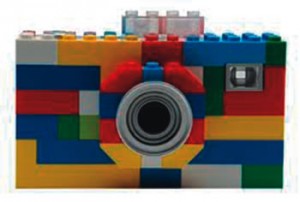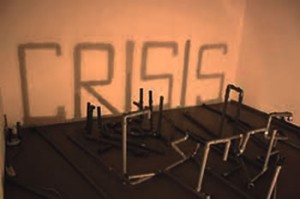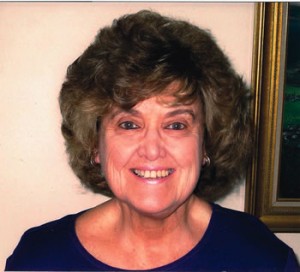Shadows
“It has been said that ‘time heals all wounds.’ I do not agree. The wounds remain. In time, the mind, protecting its sanity, covers them with scar tissue and the pain lessens, but it is never gone.”
Rose Fitzgerald Kennedy, 1890-1995. Political wife, mother of President John Fitzgerald Kennedy, and eight other children.
Recent surveys indicate that many, many people retain hundreds of photos on their electronic devices. Apparently, these pictures are very rarely developed in the “old-fashioned” way. It has been said that storing the photos in the hi-tech equipment solves a storage problem as well as developing costs. It has also been said that this particular type of storage makes the pictures readily available for sharing with others. I am sure each of us has had the experience of seeing a photo of a new baby, a new puppy, a graduation or a wedding on someone’s iPhone. This technological age seems to pose a serious threat to the family album.
I am, as the technologically savvy say, a dinosaur. I love the old family photo albums, with the photographs neatly aligned and labeled. Some of them are old and faded, but there is a depth of history present in those photographs that cannot be captured on an iPhone or other electronic devices. As I look through the albums, I pause over some of the pictures, and fondly recall the incident or the person. I absorb my family, my story. I need to look, and then stop to consider the photograph while internalising and refreshing my memory. Sometimes, I can even feel the love gushing forth from those old photographs! Spending time poring over the albums of our family history is a treat I give myself, and I love it.
I own a very basic digital camera, an “aim and shoot” model. It is small, easy to handle, and very reliable. This is perfect for me since I am not really a photographer. I just like to take pictures of the people in my life, so that I can save the photos, and enjoy them time and time again in the future. A very big bonus in this modern technological age is that my trusty little camera enables me to delete the really bad pictures before the developing, or printing, as it is now called. Developing now seems to be an “old-fashioned” term.
So, I was eagerly looking forward to heading for the printer to pick up some recent pictures which I had been able to edit, thanks to the magic of modern computers. Since I had been delayed getting them to the store for processing (they were being “stored” on the disc in the camera), I had pictures of multitudinous holidays and events on the one disc. When I retrieved the order, there were multiple packages. I was thrilled to have so many new photos to explore. When I arrived home, I got myself comfortable, made a cup of tea, opened the packages, and started my magical journey.
There were some lovely photos in that package, as well as some which I might have deleted. They were relegated to the discard pile, and I continued to enjoy the rest. One particular picture of my family was really lovely. Everyone was smiling broadly, and the happiness of the group was almost palpable. But, there in the upper corner of the picture, was a dark shadow. It didn’t block anyone’s face; it just seemed to be part of the ceiling. It was very distracting. I wondered how I had missed that spot when I was editing the photos. I returned to the store, and entered the disc into the computer, confident that I would be able to remove the shadow. But, no matter how hard I tried to maneuver the photograph, I could not delete that dark spot. That shadow jumped out at me, and it was all I saw when I looked at the photo. I put the picture into a frame, hoping that the edge of the frame itself would hide the shadow. No luck. The shadow was still there, and nothing I did was able to erase it.
It was only when others commented on the lovely family photo that I realized what was happening. My intense concentration on that shadow hindered my perspective, so much so that I was hardly able to focus on the lovely, smiling faces of the people I loved.
My experience with that photograph was clearly a reminder of how often we fallible human beings lose our ability to perceive the many gifts in our lives. So often, the “shadows” in our lives become the focus of our attention. The sorrows and losses become dominant in our thoughts, the ever present darkness. There is the pain of broken relationships, death, accidents, illness, and other endless personal issues which cast shadows in each of our lives. Certainly, there must be time for normal and natural grieving; that is a healthy response to a personal loss. For example, when I focus only on the loss of my beloved daughter, the pain is almost overwhelming, and it is hard to remember the gifts of joy which she brought into my life. The shadow becomes dominant, and that interferes with my ability to fully recall that God has promised me I would not journey alone.
The challenge is to learn how to live in the presence of loss and pain. Henri Nouwen, the great spiritual writer, once reminded us that “In all forms of light, there is the knowledge of surrounding darkness.” When writing about joy and sorrow, the great poet and philosopher, Kahlil Gibran said that “You are weeping for that which has been your delight.”
It would be wise to explore how often we let the shadow of our losses become the focal point of our thoughts and attention. The pain of the loss, whatever it is, will undoubtedly remain with us forever. We grieve for the loss of something or someone who had been precious to us, but, as Christians, we are challenged to defy the shadows, to remember that we are a “resurrection” people.
There are no shadows in darkness. Shadows are created by light, and only exist in the presence of light. Refusing to acknowledge our shadow leads us to deny the presence of light in us.
Franco Santoro, Italian author, spiritual and holistic healer, and educator, presently works for the Findhorn Foundation in Scotland.
There is strong shadow where there is much light.
Johann Wolfgang von Goethe, 1749-1822.
German writer, poet, and politician, in Götz von Berlichingen

 Entries(RSS)
Entries(RSS)